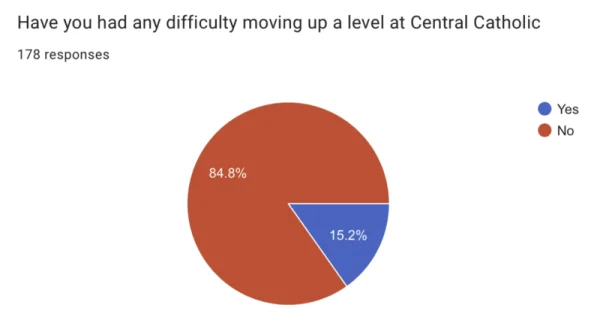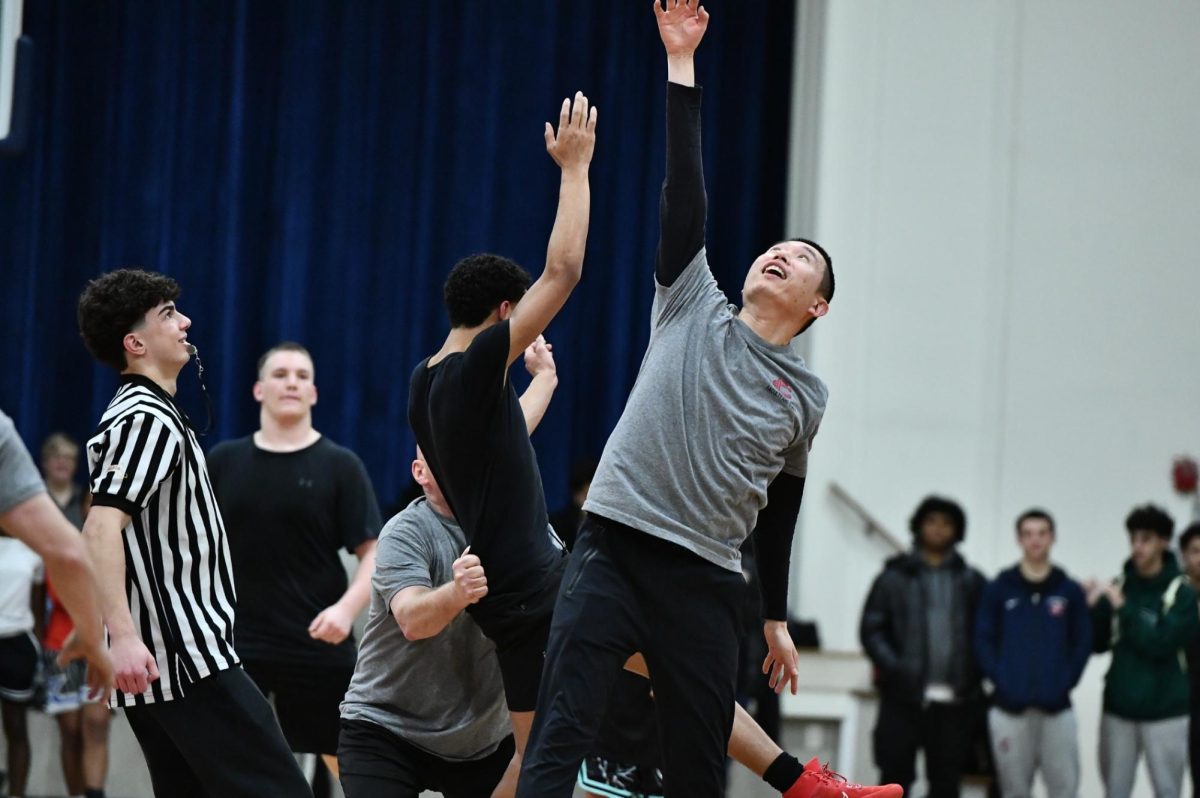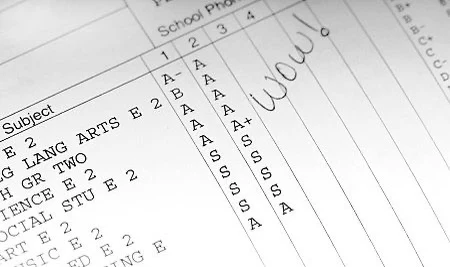By Lanna Govoni ’26
Source for photo above: Pinterest.com
In a poll conducted among CCHS students, many students explained that they were not sure where to start when trying to advance in academic course levels.
This article will explain the steps required to move up, the people involved, and the requirements.
It will also contain information and fun-facts from interviews with Ms. Burns (our Academic Dean) and teachers, plus the results from our student poll.
At Central Catholic there are four levels for classes:
- AP
- Level 1 Honors College Prep (HCP),
- Level 2 Enriched College Prep (ECP), and
- Level 3 Standard College Prep (SCP).
For each class, course, and level there are various requirements. Students can find the requirements for the specific class they are looking to move up to in the academic course guide on the Central Catholic website.
The link to the academic course guide is provided here: Central Catholic’s Academic Course Guide

Ms. Burns explained the four steps in moving up in our interview last month:
Know ahead of time what is needed to reach one’s academic goals and then work hard. Ms. Burns says, “Having that knowledge and then working diligently over the course of the first semester in particular” is very important. Students should have good grades in the first semester, because course selection decisions are starting to be considered in March, the beginning of the second semester. During that time teachers will determine whether each student meets requirements based on their performance.
In March there are assemblies for each grade to give information to students about the options they have for the upcoming year. Students who want to move up can look at requirements and their grades and make choices based on their goals and what requirements they do or do not meet.
Students may have conversations with their counselors to discuss their options and decisions. Webinars are offered for parents to make sure that they agree with the students’ decisions and learn about other options provided for their student.
In June, when all grades are final, counselors will reevaluate decisions students have made. They will decide whether the decisions made are still the best option for that student.
Though counselors make the final decision, it is important for students to know whether they or their parents have more responsibility throughout the process. All CCHS administrators interviewed for this article came to the same conclusion: the student has to take initiative and choose to work hard and set goals. Parents and students should be discussing the opportunities that students have, how the level change would affect their day to day lives, and also how this could affect their future.
Other than counselors, students, and parents, teachers and Ms. Burns are also an important part of the process.
How are teachers and administrators involved?
Teachers: Teachers are able to have conversations with their students about what requirements are needed to move up in an academic level for that particular class. In addition, they can speak with counselors and Ms. Burns to discuss whether they think moving up would be the right decision for that student and to determine what to do for a student on the cusp of certain requirements.
Ms. Burns: Ms. Burns is the Academic Dean of Students. She discusses requirements for courses and students on the cusp with other faculty. She also has meetings with parents to discuss student’s options for future academics. Some counselors go to her when discussing the best options for a student.
What are the options for students in specific courses that meet the requirements for moving up?
In specific courses (one example could be Algebra 1 & 2) some students are offered a chance to move up not one but two levels. They can do this by taking another course during the summer so that they can advance two levels.
If a student does not have the opportunity of taking the summer course, it does not mean that they cannot advance. They may still be able to move up in academic levels if they meet all (or are on the cusp in some cases) requirements.
Ms. Burns and science faculty, Mrs. Parsons and Ms. Bolduc, have all repeated one fact: when moving up a level, a student can only be successful if they drive and the ability to manage demanding courses. A student poll shows that students who are or were struggling with moving up a level have trouble balancing homework and the new pressure that they are face. Futhermore, some students in our poll struggled with higher levels because they found it hard to adjust to the new workload and teaching methods.
Only 15.2% of students reported difficulty with moving up an academic level. This difficulty was almost always due to personal circumstances related to the more challenging coursework and not the moving up process.
Moving up a level can be a big step. But the point of this article is to help students and even parents understand where it starts, when students will start to hear about their opportunities, and that the best way to achieve success starts with working hard and setting achievable goals.
The good news is that only 15.2% of students had difficulty moving up, and most explained in the polling that it was because of the adjustment to the new workload and classes. Students who want to move up should be encouraged, knowing that the vast majority of students had good experiences with moving up.
Fun Facts
47.2% of the students that answered the poll had advanced in academic levels in the past.
68.2% of students are looking to move up in the future.
Most students that had moved up in the past, moved up in sophomore year.

Most students (48.7%) are interested in moving up to Honors College Prep:

Breakdown of interest per subject area:



























